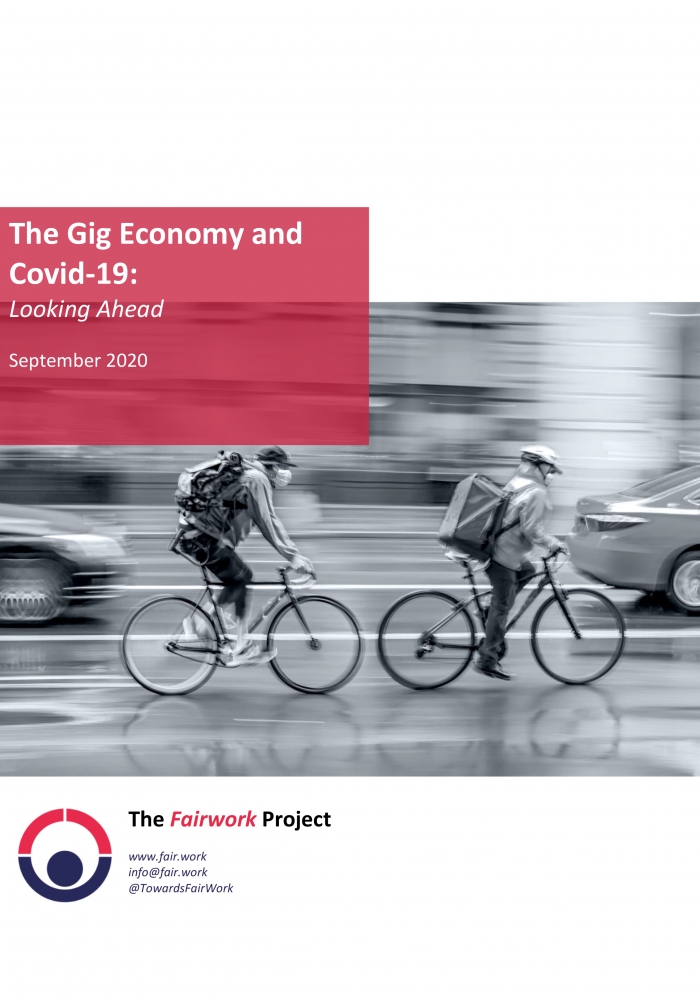The Gig Economy and Covid-19: Looking Ahead


In March 2020, we began investigating how gig economy platforms were responding to the Covid-19 pandemic. Reports indicated that half of gig workers had lost their jobs; those still working had lost two-thirds of their income on average; and many faced the impossible choice between penury and infection. As summed up by one worker: “either I’m starving or I’m dying of coronavirus.” As those who continued to work performed functions essential to society, the pandemic deepened the fracture lines of inequality: not just between gig workers and those who are currently better served by government support schemes, but also by placing additional pressures on the women, migrants, and minority-ethnic groups who form a core part of the gig workforce.
How are platforms responding? To investigate this, between March and April 2020, the Fairwork Foundation undertook a survey of platform policies, covering 120 platforms in 23 countries across Europe, North America, South America, Asia and Africa. The results were published in a report in April 2020.
Since then a lot has changed. As of September 2020, more than 31 million people have been infected, and almost one million have lost their lives to the virus. The financial, social, physical and psychological toll of the pandemic has been immense. We are entering into a period where not only government financial support schemes are ending, but also the relief packages and policies offered by the platforms and other private initiatives.
Suggested citation:
Fairwork. 2020. The Gig Economy and Covid-19: Looking Ahead. Oxford, United Kingdom.